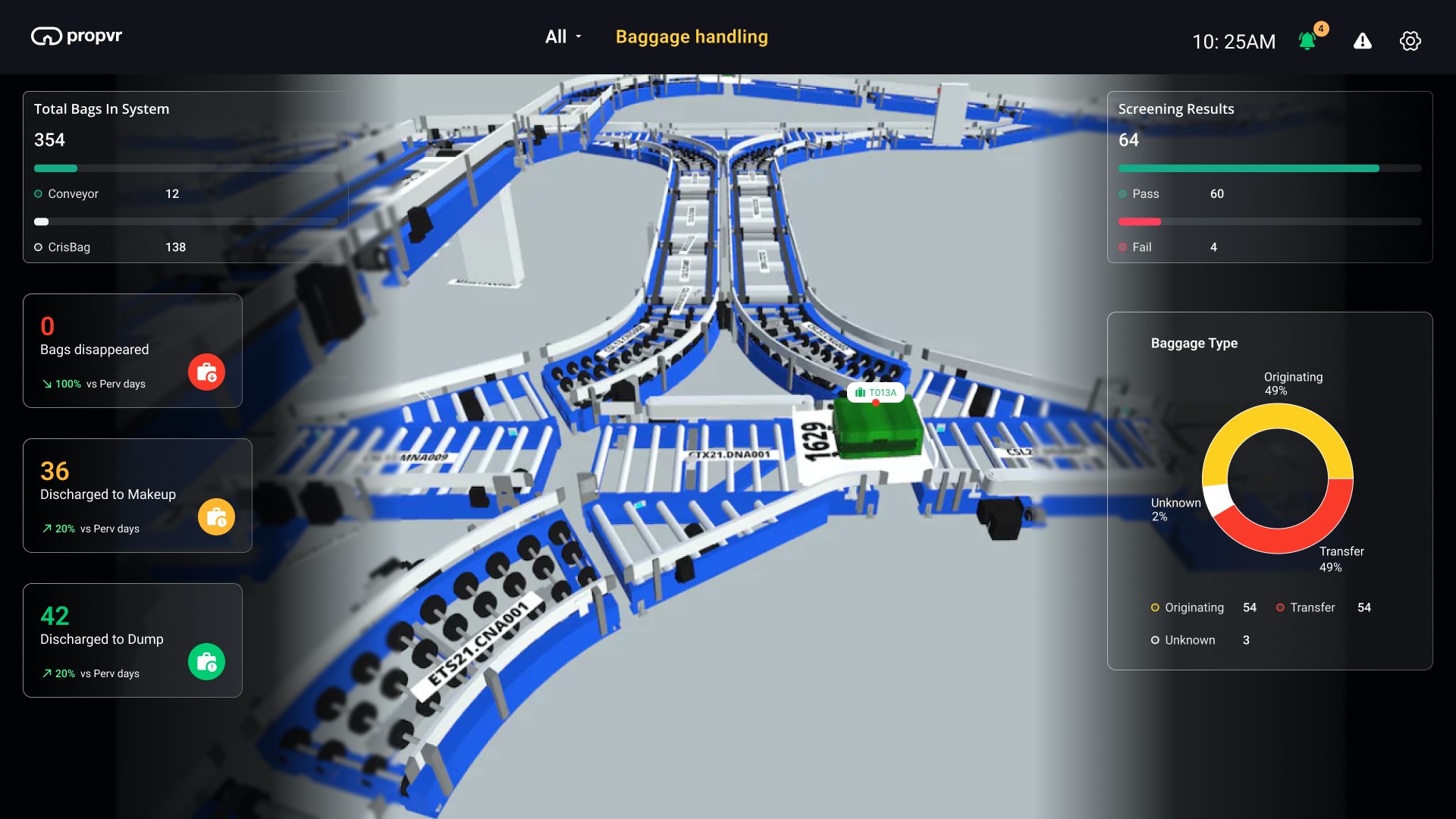Digital Twin Integration
Introduction:
Misplaced or incorrectly handled luggage continues to be a significant source of anxiety for travellers, as it can cause inconvenience and negatively impact their trip. Real-time baggage tracking offers a solution that lets travellers see the route taken by their bags using RFID tags and tracking technologies. For instance, a passenger who tracked their luggage in real-time using an airport smartphone app reported feeling more comfortable when they realized their bag was travelling with them. The current case study explores how real-time luggage tracking situations increase traveller satisfaction and reduce the possibility of baggage misplacement issues.
Scenario Analysis:
A top airport understands the importance of improving baggage handling procedures to improve the passenger experience. During passenger check-in, the airport affixes RFID tags or other tracking technologies to the luggage to implement real-time baggage tracking. In this procedure, the baggage tag is scanned and connected to the traveler's flight information in the airport's database. These tags allow for constant baggage tracking from check-in desks to aircraft loading and, ultimately, baggage claim areas within the airport.

Passengers can track their luggage in real-time through self-service kiosks or airport mobile apps, giving them more power. Knowing the precise location of their luggage at all times, thanks to this visibility, gives them a sense of control and security during their trip. In the event of any deviations or delays, passengers receive timely notifications, allowing them to take proactive measures and address any issues promptly.
Product Integration and Benefits:
Integrated with the airport's baggage handling system, the real-time baggage tracking solution provides a seamless and efficient process for luggage management. This integration involves the installation of RFID readers and tracking sensors throughout the airport's infrastructure. These devices capture real-time data about the location and movement of each tagged bag, which is then transmitted to the airport's central system for processing and analysis.
Passengers benefit from improved transparency and communication regarding their baggage status. Real-time updates on baggage location and movement reduce the risk of lost or mishandled baggage incidents, enhancing passenger satisfaction and loyalty. Moreover, airport staff can proactively address any issues or delays in baggage handling, ensuring a smooth and hassle-free travel experience for passengers.
The benefits of real-time baggage tracking extend beyond passenger satisfaction. Airlines and airports can now operate more confidently, knowing they can experience reduced operational costs associated with baggage mishandling, including compensation claims and re-routing expenses. Enhanced efficiency in baggage handling processes leads to improved on-time performance and overall operational excellence.
Conclusion:
In conclusion, real-time baggage tracking revolutionizes not just the passenger experience, but the entire travel experience. Providing visibility and control over luggage throughout its journey eliminates one of the most stressful aspects of travel. By leveraging RFID tags and tracking technologies, airports can significantly reduce the risk of lost or mishandled baggage incidents, enhancing passenger satisfaction and loyalty. The successful implementation of real-time baggage tracking improves the travel experience and drives operational efficiencies and cost savings for airlines and airports.
As the aviation industry increasingly prioritizes customer-centric solutions and digital innovations, real-time baggage tracking emerges as a critical enabler of this shift. By investing in technology and infrastructure to support real-time tracking capabilities, airports can differentiate themselves and deliver exceptional service in an increasingly competitive market. Real-time baggage tracking represents a win-win solution for passengers, airlines, and airports, ensuring smoother and more enjoyable journeys for all travellers.